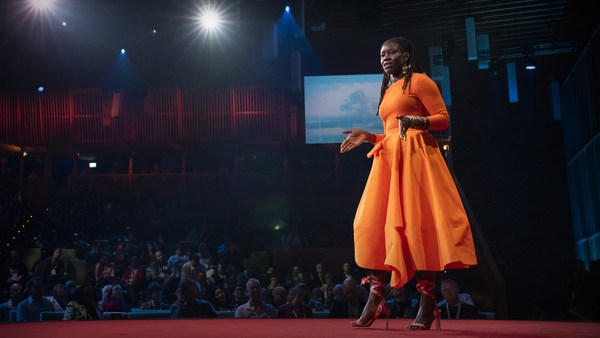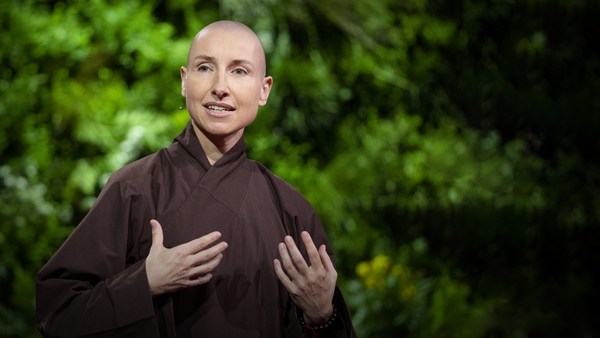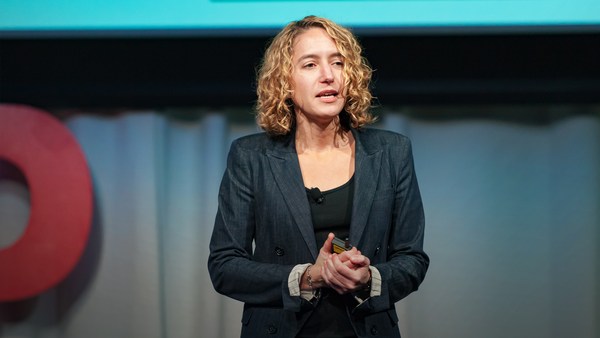Here is one way to begin to talk about what the pandemic, the post-2020 world, began to set in motion. All together, for a time, we felt for the ground beneath our feet. We remembered that the ground beneath our feet is never as solid as we believe it to be. We remembered that civilization revolves around something so tender as bodies breathing in proximity to other bodies. We softened. Chasms became un-unseeable. Between the ways we've been living and our deepest longings for all of our children and the highest potentials for human flourishing.
So how to step into what we have been given to see, how we have been given to learn and to grow.
I've been looking back across my 20 years of listening to the world and being in a radio and podcast conversation with wise and graceful lives. And I want to share with you three arts of living that have persistently emerged. Callings. Each of them carries practices towards what it might mean for each of us to participate as we move forward in the remaking of this world.
The first is to see the generative story, the generative narrative of our time. We are fluent in and very familiar with the narrative of catastrophe and dysfunction and disarray. And that is real. But it's not the whole story of us. There is also an abundant reality of things going right at any given time. Of learning and growth that are happening, of evolution and breakthrough.
One of the things that happens when I use this phrase, the generative narrative, and people hear it for the first time is sometimes they'll say, "Well, give me an example." And I say, "Just look around you." Even when we leave this special place and go back to all the places we came from, it is ordinary that all kinds of people with all kinds of lives are finding ways to be of service. They are standing before a world in pain. They are working with forms that are broken. They're probably working in institutions that don't quite make sense anymore, and they're having an edifying effect on the people around them, becoming healers and social creatives in so many forms.
Now we are strange creatures, and this is one of our strangest qualities. We don't know how to tell this generative story of us as vividly. We don't know how to take it as seriously as that story of rupture. And this has started to make sense as we are able to peer more intricately inside our brains and bodies. It turns out that our brains are exquisitely designed to keep us safe and on the alert for danger. Our brains are riveted by what goes wrong. They are looking in every instant for what will go wrong next. And this underlying orientation turns up in our most sophisticated places, certainly in the field of journalism, in which I trained. It turns out that we actually have to more actively, consciously orient ourselves if we want to attend to and get riveted by what is good and redemptive.
The invitation here is to take in the good. And just naming, calling it out, that there is a generative story of our time, that you can see it too, this is a way to begin. Take in the good. Let it start to actively shape the whole picture of the world you are working with. And when you do that, you begin to make the generative -- this whole landscape of generative people and projects, more visible and defining to themselves and to this world which carries so much pain and so much promise.
My second offering is to live the questions. And this one is a gift from the poet Rainer Maria Rilke, who became a friend across time and space to me in years I spent as a very young journalist in divided Cold War Berlin. In the early 20th century, Rilke wrote a wonderful series of letters to a young poet in which he counseled, "Be patient with all that is unresolved in your heart." He said, "Try to love the questions themselves as though they were locked rooms or books written in a very foreign language." He said, "Don't try to reach for the answers which could not be given to you now because you would not be able to live them." The point is to live everything. Live the questions now, then, perhaps someday far in the future, you will gradually, without even noticing it, live your way into the answers.
Like us, Rilke was a citizen of a young century with spectacular potentials for creating and destroying. And it's come to seem to me that the great challenges, all of the great challenges before our young century on some level are vast, aching open questions. All of our challenges, ecological, racial, economic, spiritual, political -- vast, aching, open questions for which we will not have anything like answers any time soon. So I find myself returned anew to this wisdom that when we find ourselves in this situation, we are called to honor and dwell with the questions themselves.
Now we live in a culture that is in love with the form of words that is an answer, an opinion. And we are in love with the way with words that is an argument. But a question is a mighty form of words. As an interviewer, I know that questions elicit answers in their likeness. Answers rise or fall to the questions they meet. And it is a deep, deep truth in science as in life that at any given moment we are being shaped as much by the questions we're carrying as by the answers we have it in us to give. Those moments when a new question rises up in us, stops us in our tracks, those are pivot points. Those are moments when the possibility of discovery breaks in. So the invitation here is to engage the adventure of a new reverence for the questions that are alive in you, the questions that are alive in the world around you.
That question, which I believe almost every one of us standing before our world and its pain and its problems, wondering, "How can I possibly make a difference? How to begin?" Spend some time formulating your variation on that question. Write it down. Commit to having it over your shoulder, in your ear as you move through the next few months of your life. See what it invites you to see and to move towards and to move away from. I have found that if you are faithful to living a question, that question will be faithful back to you.
And my third offering is about calling and wholeness. The Latin word for “calling,” “vocare,” is the root of our word in English, "vocation." And in the world in which I was born, vocation was very narrowly equated with work and job title. But we are not called merely to be professional people. We are called to be friends, neighbors, family, citizens. Lovers of the world. And just as there are callings for a life, there are callings for our time. It has come to seem to me that our generation in time, our generation of our species, is called to nothing less than wholeness, that we have it in us to figure out what it would mean to cultivate whole human beings with whole institutions, living in whole societies. The invitation here is to turn your powerful reality-shifting imagination, your intelligence, your energy, your will towards the possibility of wholeness. How to live into that. And I want to be very clear that becoming whole has nothing to do with aspiring to perfection. It is not about achieving perfection, and becoming whole also does not mean that we become less strange or wild or complicated. Becoming whole would mean that we orient together away from what is death-dealing and towards what is life-giving.
Every fracture of our world notwithstanding, the science of our age is revealing all of life in its insistence on wholeness, the interplay between our bodies, the natural world, the lives we make, the worlds we create.
And every dilemma around our technologies notwithstanding, our technologies have given us, for the first time in the history of our species, the tools to think and act as a species. Take that in. It is the calling of callings to make that more vivid and tangible and real, each of us starting inside ourselves and with the lives we've been given. And across my life of conversation, I have learned that wisdom and wholeness emerge in moments precisely like ours, though ours is writ large, where human beings have to hold seemingly opposing realities in a creative tension and interplay, power and frailty, birth and death, pain and hope, mystery and conviction, brokenness and beauty, calm and fierceness, mine and yours.
Let's begin.
Thank you.
(Applause)



